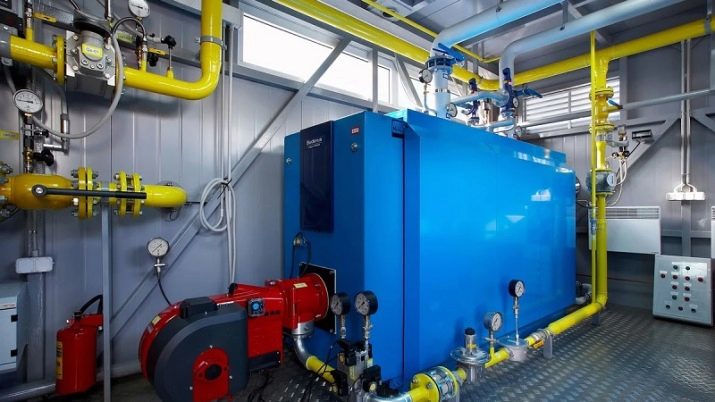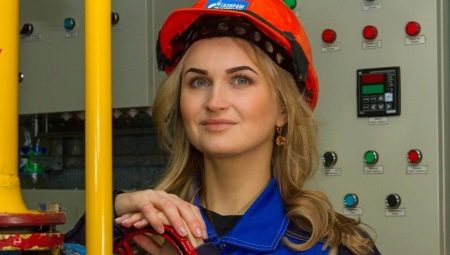Today, among young people, office rather than working professions are more popular. However, specialists in the second category remain in demand on the labor market. Today in our article we will take a closer look at such a profession as a boiler engineer.
Features
The operator (or fireman) of the boiler installation is an employee who monitors the work of operators and lineman directly serving the boiler unit. WITHa specialist provides safety, reliability and economy of the operation of equipment operating on solid or liquid fuel. If we consider this profession from a historical point of view, it is important to note that it appeared at the time of the active development of the energy industry. At the same time, it is worth saying that the profession is important and in demand to this day.
The work of the boiler operator is associated with a high level of responsibility. In addition to his core responsibilities, the employee ensures the organization and conduct of emergency operations.
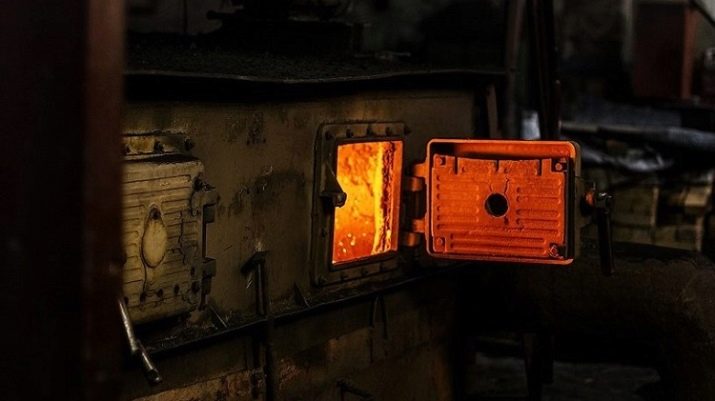
Responsibilities
The profession of a boiler operator is included in the unified qualification and tariff guide (or ECTS), and the employee carries out his direct professional activities on the basis of a professional standard and job description. You must familiarize yourself with all these documents before officially accepting a job offer, since they contain all the details and nuances of the profession. First of all, it is recommended to read the section "Responsibilities of a specialist". Only in this way will you be able to verify your competence in performing work functions.
The duties of the boiler operator include:
- maintenance of steam and water heating boiler equipment on a regular basis;
- conducting preparatory activities for the quality implementation of the seasonal launch;
- boiler room monitoring;
- the implementation of stopping, starting and switching operating modes of the unit;
- keeping records of released heat;
- prevention of breakdowns and malfunctions, their timely elimination;
- cleaning boiler plants (for example, from ash or slag) and many others. other
All official documents that describe the duties of the boiler operator are standardized. However, at the same time, each individual company and each specific employer can make changes to them. Accordingly, during employment you need to be prepared for the fact that job responsibilities can be changed and supplemented. You, in turn, must be able to quickly adapt to such changes. Remember, you may be held liable for the improper performance of your tasks.
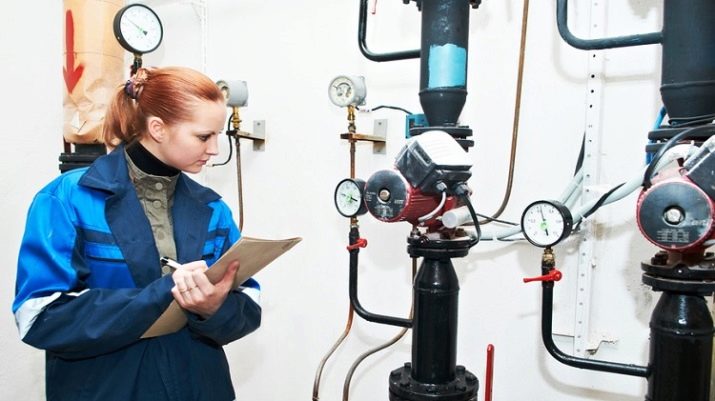
Skills and knowledge
Each boiler room stoker seeks to fulfill his duties at the highest level. In order for an employee to work efficiently and competently, he must have specialized knowledge and professional skills. Let's consider them in more detail.
The specialist should know:
- the principle of operation of the boiler plant and additional equipment;
- basics of heat engineering;
- technical parameters of each specific unit;
- instructions for labor protection and safety;
- fundamentals of electrical engineering, mechanics and water treatment, and many others. other
A professional should be able to:
- prepare fuel mixtures;
- use advanced domestic and foreign experience in their work;
- be able to provide first aid;
- be able to work with primary fire extinguishing means and many others. other
The combination of professional knowledge and skills allows the employee not only to competently perform their job functions, but also to quickly move up the career ladder. In addition, it should be borne in mind that often employers put forward requirements not only in relation to professional knowledge and skills, but also in relation to the personal characteristics of the employee.
So, in the description it may be indicated that an attentive to detail, responsible, punctual, stress-resistant, outgoing specialist is required, who strives to develop and improve in the profession.
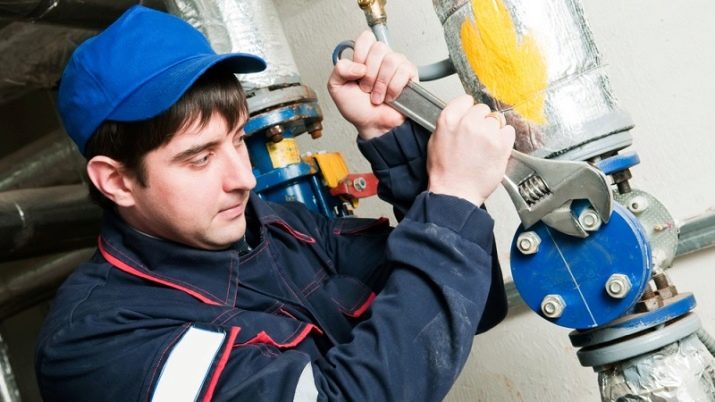
Discharges
Depending on the qualifications and competence of the boiler operator in the course of his professional activity, he can increase his rank.
2nd category
The duties of a specialist of the 2nd category includes a wide list of works, namely:
- maintenance of equipment with a heating capacity of 12.6 GJ / h to 21 GJ / h (depending on the specific type of unit);
- work with devices whose carrying capacity is not more than 25 tons;
- liquid feeding of boilers, as well as kindling, start-up and suspension of equipment operation;
- equipment cleaning, slag and ash removal;
- work with heating network boiler installations, etc.
3rd category
In the course of his professional activity, a 3rd-category engineer:
- monitors the functioning processes of traction and ash and slag removal devices;
- serves crushed steam devices with a total load, which is in the range from 42 to 84 GJ / h;
- ensuring the operation of the boiler room without interruption;
- accounting for the amount of heat;
- implementation of repair and adjustment work, etc.
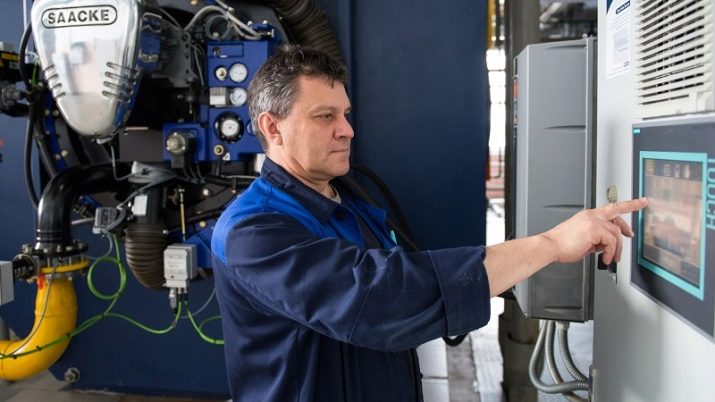
4th category
The job description of the employee of the 4th category includes:
- maintenance of equipment whose heating capacity is in the range from 10 to 20 Gcal;
- monitoring the operation of measuring instruments;
- drawing up a steam consumption plan;
- troubleshooting and breakdowns;
- preventive work, etc.
5th category
The work tasks of the 5th category driver consist of:
- switching power lines;
- start and pause the functioning of automatic equipment;
- boiler acceptance;
- preventive equipment analysis;
- filling and emptying steam lines, etc.
6th category
An employee of the 6th category for the most part performs only one function, namely, it serves equipment with a total heat production level of 65 Gcal / h.
In this way, depending on the specific discharge that the driver has reached, his working functions can vary significantly. Moreover, the higher the rank, the more serious work the employee must perform.
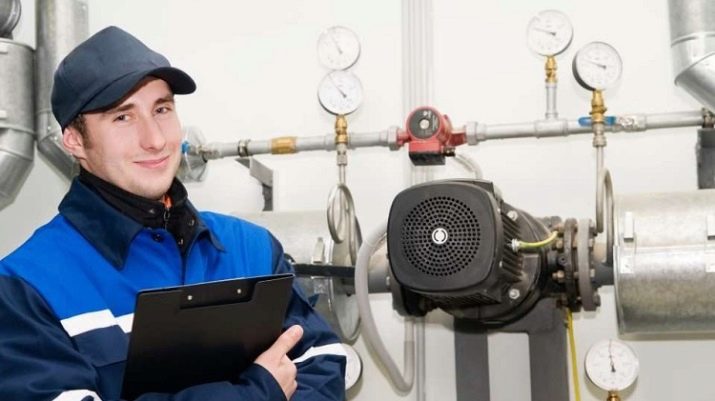
Training
In order to occupy the position of boiler house operator, first you need to learn the profession. To do this, you need to graduate from a higher educational institution in the relevant specialty, as well as take educational advanced training courses. In general, we can conclude that modern employers put forward increased educational requirements for these specialists.
At the same time, you will be able to stand out from all applicants if you have only the highest grades in your diploma, and also if you studied at a prestigious and reputable educational institution located in the capital or a large city.
Where does it work?
The boiler operator works at specialized enterprises. Wherein a graduate of an educational institution begins with starting positions (for example, a crawler). Only after a young specialist has mastered basic professional skills and abilities, as well as gained work experience, he can apply for higher positions. In general, boiler house operators can work both at state-owned enterprises (for example, in the urban heat and power plant) and in private organizations. The salary of the latter is usually higher.
Thus, we can conclude that boiler room operator is a highly paid and sought-after profession. It will attract those young people who are fond of exact sciences (for example, mathematics, physics, chemistry). Having received the appropriate diploma of education, you will not be left without a job and will always be in demand in the personnel market.
